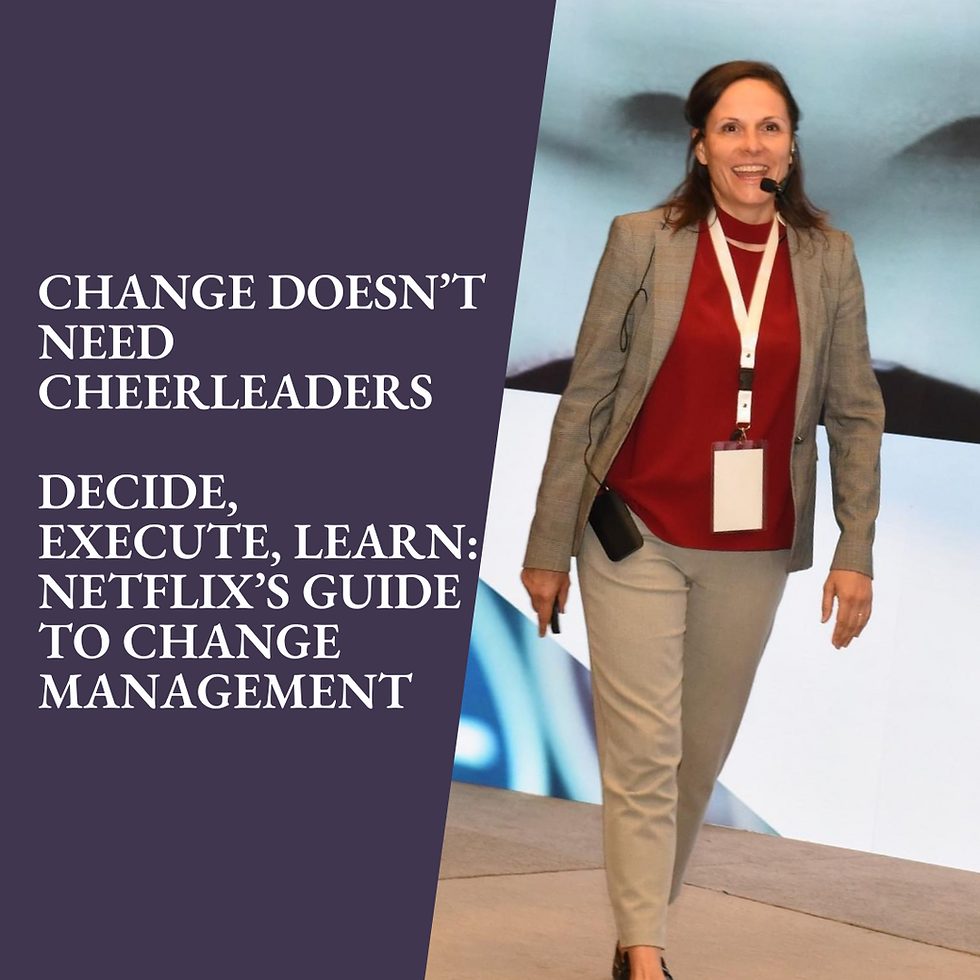The Person Behind the Employee
- Szilvia Olah

- Jul 9, 2021
- 4 min read
Updated: Apr 6, 2022
Ask your friends, family, colleagues, or yourself, "What are your strengths?" They will look at you with a blank stare, or they respond in terms of knowledge, task or interpersonal related skills.
I ran a session yesterday, not a Strengths session, but I used some of the questions like; "What talent do you bring to the team?" or "When do we get the best of you?" or "When do we get the worst of you?" and the big one "What do you need to be your best at work?"
The answers confirmed what I already knew. People don't know themselves. They don't understand how they operate, the conditions for their peak performance, what they are not good at all, and what triggers them. But I kept going; I probed further because now I was intrigued by the fear or rater hesitance most demonstrated when asked to articulate answers to those questions. One person picked a card that had a lion on it. I asked, "How does that represent the way you work with others?" He explained how the lion represents leadership, accountability, responsibility and reliance, but it was all in 3rd person. When I asked several times, "what does it mean or how does it apply to you personally?" I noticed that he was scared to turn those statements into 1st person.
So I helped him. I helped him to rephrase those and own those statements that looked like; "You can rely on me when I am on the shift", "I will lead the shift, I think I have what it takes", and "I will make sure you have everything you need to do the job". This person is not in a leadership role, and he doesn't have to be in one! He doesn't have to be a leader to demonstrate those attributes. It is not what it means! It means that the team can rely on him. He works independently and confidently and looks out for the team.
Now, why don't we know these things about each other at work? Why are we scared to articulate our qualities? But most importantly, why don't we have conversations about who we are, what is essential for us, how we function or how we disfunction at work?

Partly I blame organizations' systematic one-way approach that built into every area of workplace practices. Let me give you an example. EXPECTATIONS. Oh, we love them, don't we? The manager, HR and the company present us with lists of expectations that are longer than the longest Ancient Egyptian papyrus roll (40m), describing what employees must comply with. Companies' hiring practices even include assessing for cultural fit (which is a terrible idea but about that another time) "making sure" that employees don't stand out of the crowd more than the organization would like them to. Simply put, don't be too much of a nuisance!
And how do they make sure that you are not a nuisance? HR will come with all sorts of policies, the line manager with all the goals, targets, and behavioural & brand standards. Finally, Talent Management throws in the famous Competency Framework that outlines how employees must behave, what they must know, what they must be good at, how they must think, and, most importantly, where they are placed in the food chain.
Combine all that, and by week 4 of employment, there is nothing left of the person!
Of course, they will not articulate who they are but will talk in corporate terminologies of; "I am a team player" or "I am a positive person". Organizations told them more than enough times that they have to work as a team and to have a positive orientation (this is a real competency).
But what about the person??
How do we know who we are working with? How do we identify what they do best? What do we do to discover their greatest opportunities to contribute and use their talents in their work and life to accomplish what is most important to them?
Nothing, absolutely nothing!
Not one of my previous managers knew:
- What my Strengths are
- How, where, and when I contribute the best - and why
- What I need from them for me to be my best - and why
- What my weaknesses are - and why
- When they get the worst of me - and why
- How they can help work around my weakness, so it doesn't impact work and me
- Why do I get unsettled when decisions are made without sufficient information (My strengths are Learner and Input. I must have info to make a decision. Without it, I cannot function)
The lack of understanding of talent and people in organizations is frightening and is negatively impacting every stakeholder.
- Employees don't know how they contribute the best or who they are within the team
- Employees are not able to articulate what they need or what talent they bring
- Being restricted by all of the expectations, the people behind roles disappear and are confused. As a result, they feel that they are in the wrong role (which may not be the case) and start looking for other opportunities
- Managers and the organization themselves lose out on their investment in employing people because they don't know what to do with their talent.
It is time that corporations started to pay attention to who their employees really are and change their approach to talent management and development that is based on the person's natural abilities/talent rather than masking those with the corporate band-aid that clearly is failing to do its job.
.png)



Comments